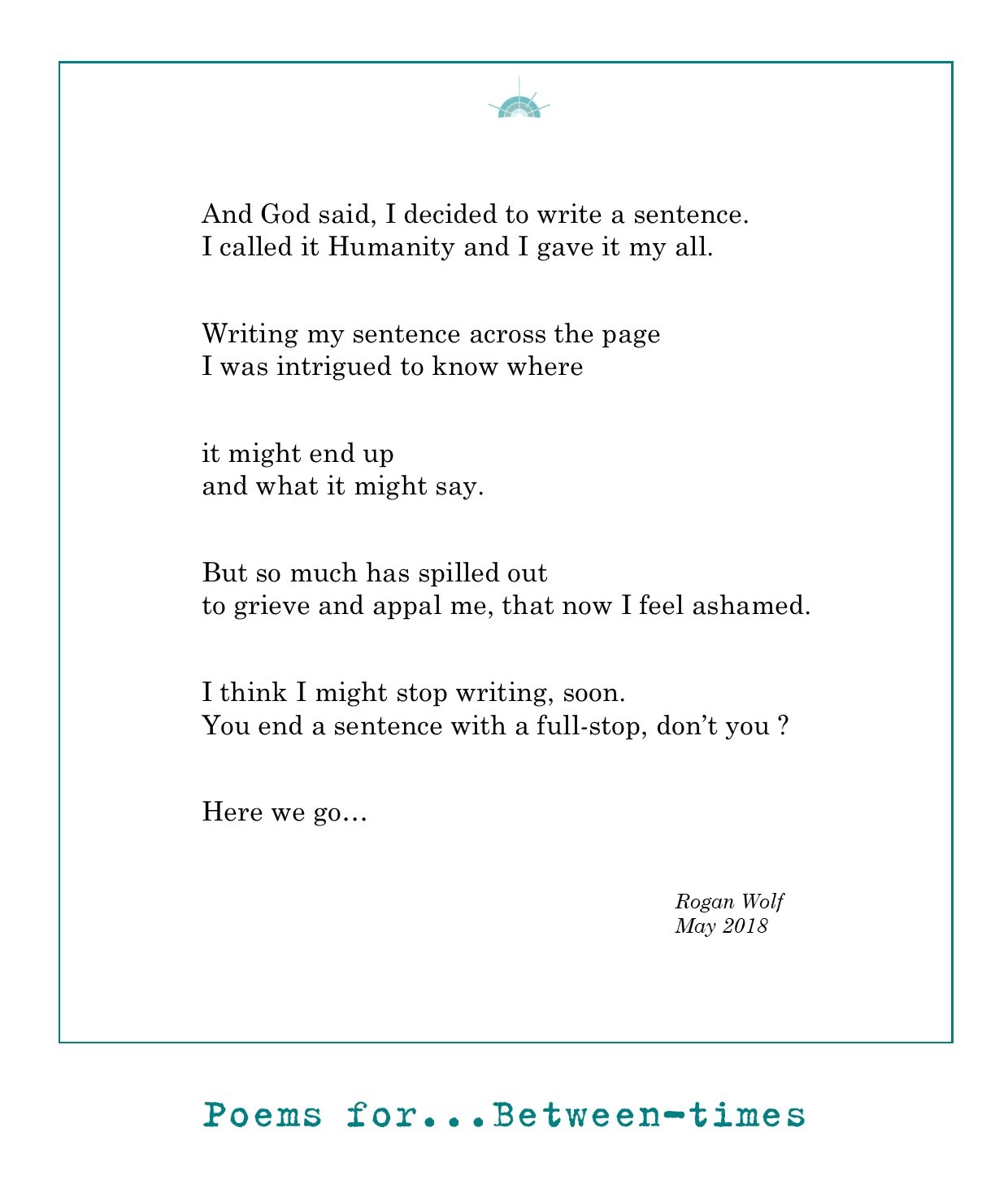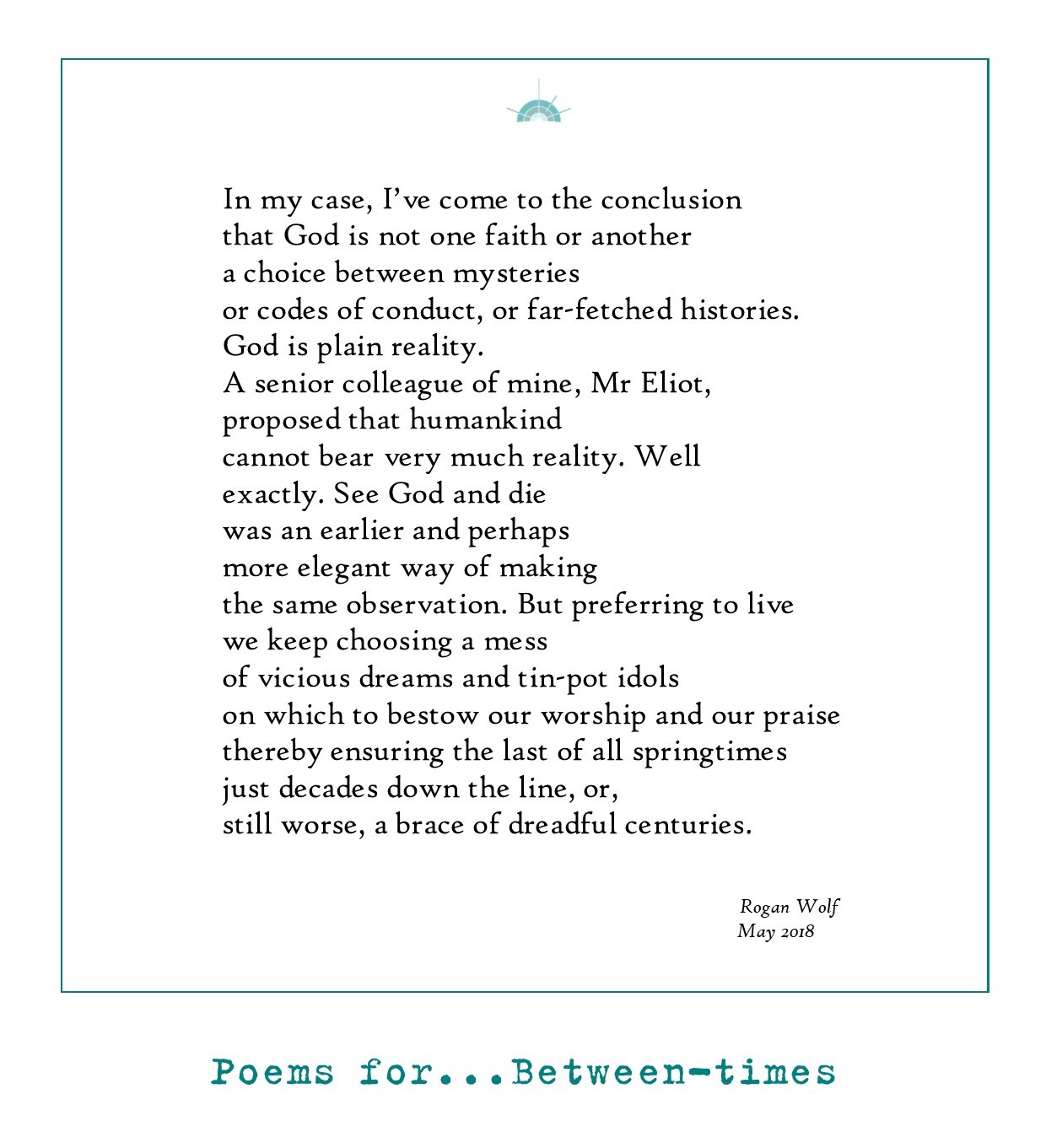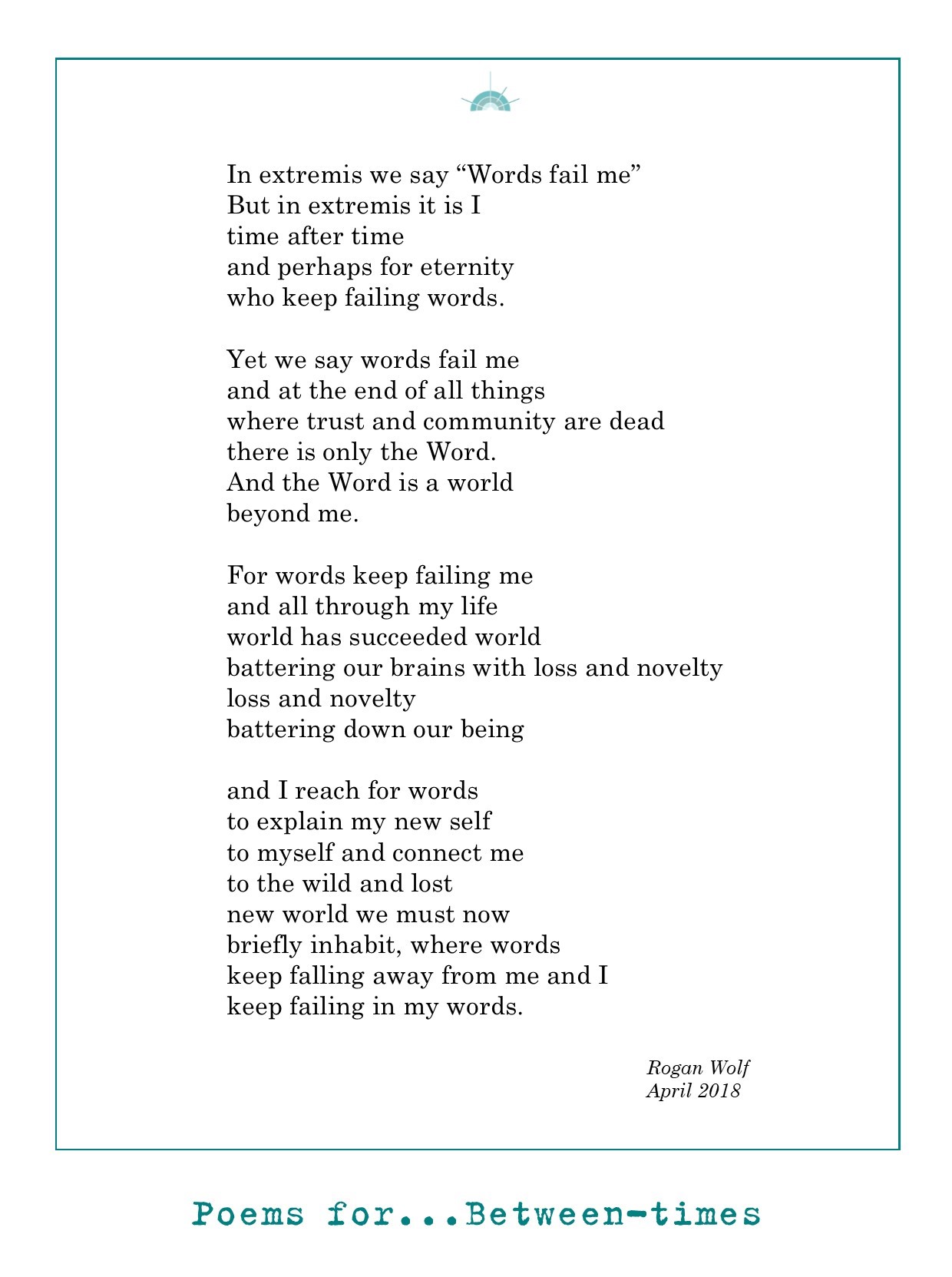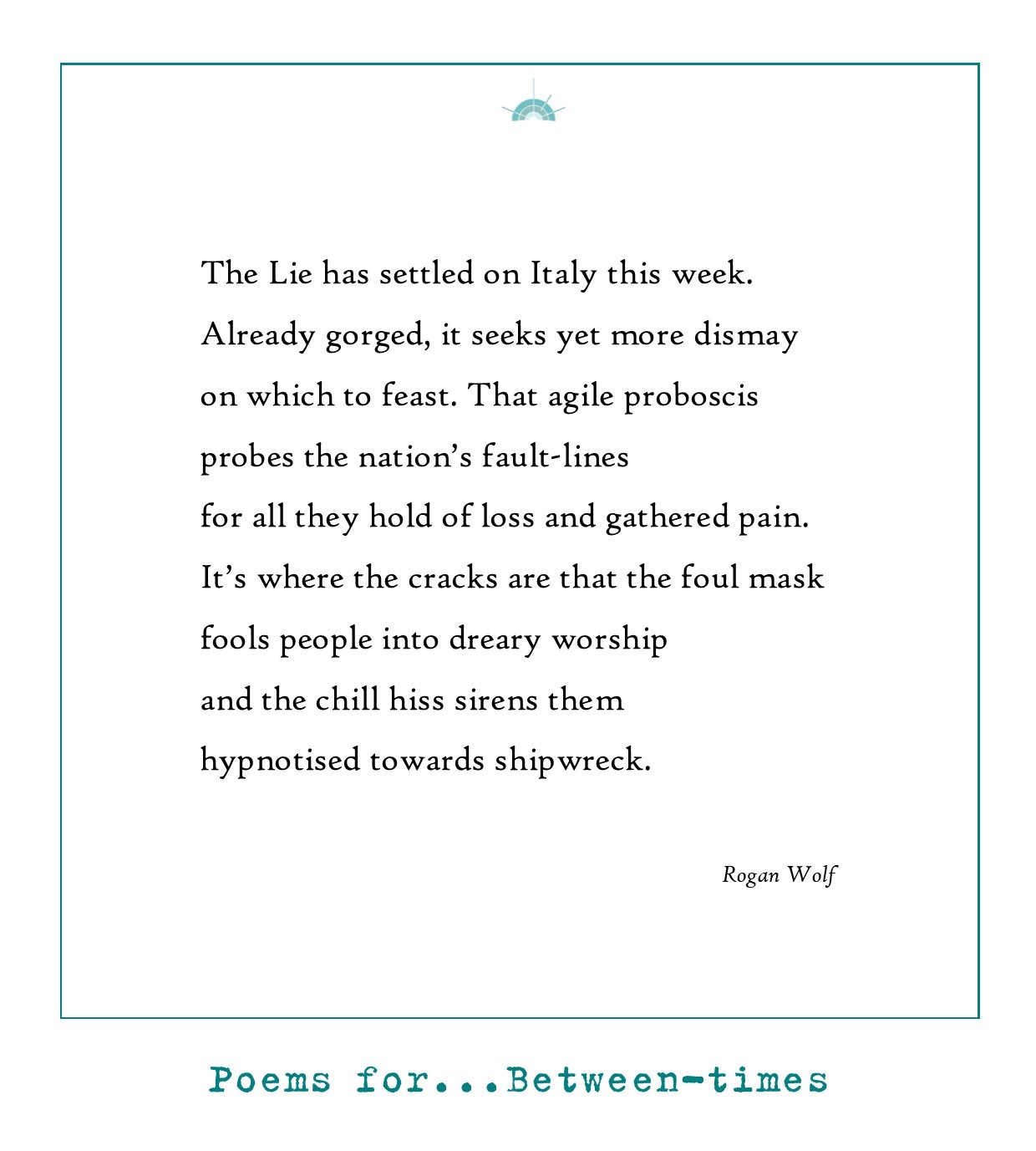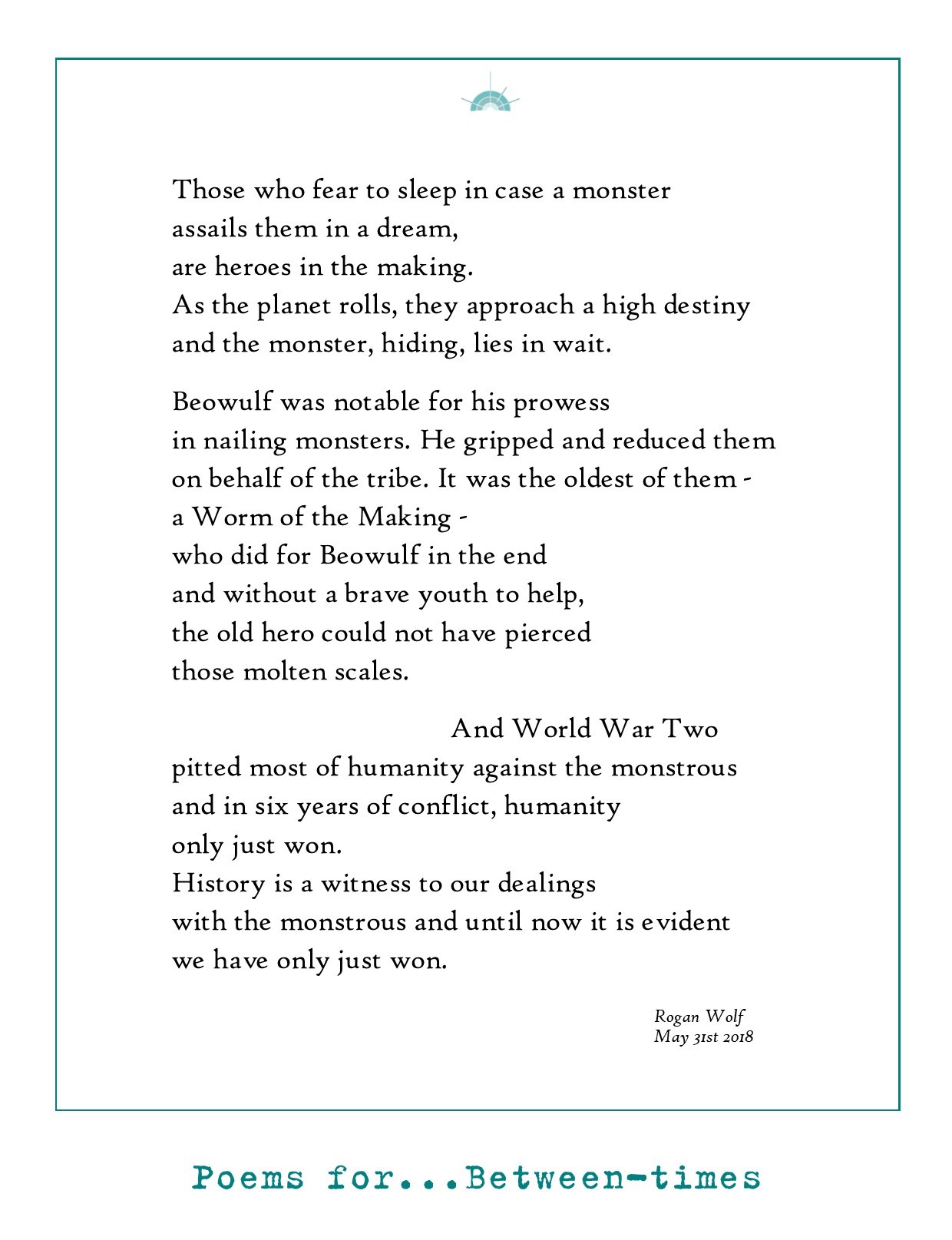
In all our sanctuaries we sit at risk
-
-
-
Augustin Doing Life

“Augustin Doing Life” is the title of a poem I wrote eight years ago. The Augustin of the title is Augustin Robespierre, younger brother of the much better known and also more fanatical Maximilien Robespierre, both swept along by the upheavals of the French Revolution, and quite early in their lives, destroyed by them. They were executed together, at Augustin’s insistence. The last two lines of the poem were written by a psychiatric in-patient I worked with in a creative writing workshop. He was struggling with psychosis, seeing with extraordinary and maybe unbearable vividness.
The Italian website Margutte (the picture above is a striking feature on Margutte’s home-page) has just published “Augustin Doing Life,” presenting it with Margutte’s usual elegance. Find the poem here (and also on the right of this home page).
Posted:
-
-
Boris Johnson Hies Abroad

There are many employers in the UK, as in other countries. They range from employers running large organisations to those who manage small teams, from people seeking to fill vacancies at various levels of a complex hierarchy, to leaders of small groups of adventurers who just need to trust one another in a hot spot.
And, whether or not they take part in the interviewing process personally, all those employers have to think carefully about recruitment – what sort of people they need to select, with what qualities ; what sort of process should there be to make sure the right people are selected.
And if any of those thousands of employers, large or small, were to find out that one of the applicants hoping to be shortlisted for interview, had previously been sacked for lying – and not just once, but twice – would not each one of them, at whatever level, instantly debar that applicant from all further assessment ?
(Unless, of course, that person were applying to join a gang of criminals).
They might even wonder why the person was still at liberty. Not jailed for fraud by now ? Not caught red-handed raiding the nation for the cost of a prestige bridge for his mates, or flamboyant railway going nowhere ?
For it’s obvious that someone who lies, and who clearly keeps lying, is someone who can’t be trusted. Here is a person who worships only Self and for whom qualities like honour and integrity and loyalty do not mean very much.
I am not accusing Boris Johnson of having lied, here. I don’t need to. I am merely repeating what is on the public record. Johnson’s Tory colleagues know that record, just as his Labour opponents do.
And knowing that record, Theresa May made this man whom no sensible employer in this nation would dream of short-listing for interview, she made him the nation’s Foreign Secretary. This leading Brexit campaigner and apologist, who might – even now – succeed May as Tory Leader one day.
What have we come to ?
This man, with his record, represents the people of the UK on the world stage. His appointment was an insult to the people of his own nation and an insult delivered by this nation to all the others of the world.
Why did May appoint him ? Was she deceived in him ? Was she naïve enough to think him worthy of the role, representing the UK to the world ? Of course not. She knows perfectly well who Johnson is. And she appointed him to that position to render him less dangerous to her retention of power than otherwise he might have been.
Thus, in passing, we see what it is that’s driving May, our Prime Minister. Certainly not the present needs or future welfare of this one nation. Despite the protestations, it is her own and her party’s retention of power that drives Ms May, at all and any cost to her nation, and to the continent of which our nation is inescapably a part. Another worshipper of Me and Mine.
And today, as I write this, Mr Johnson, our Foreign Secretary, who has only been sacked for lying twice, is in the news again. He has crossed the Atlantic to save the world from another liar and self-worshipper, the ghoulish and intemperate Mr Trump. What will they say to each other, via Fox, on our behalf ? Those two blonde bombers.
What have we come to ?
This can’t be reality. History has been turned into some comic strip fantasy. Or a fairy tale by the brothers’ Grimm. Those Blonde Bombers are meeting in a dark forest, brought together by an ancient foul fox. They will cast spells. They will cackle. They will preen before their own reflections in a forest pool. Worshipping Self, they will feast on our children.
Posted:
-
-
Wrestling with the Dark Angel – a series of poems
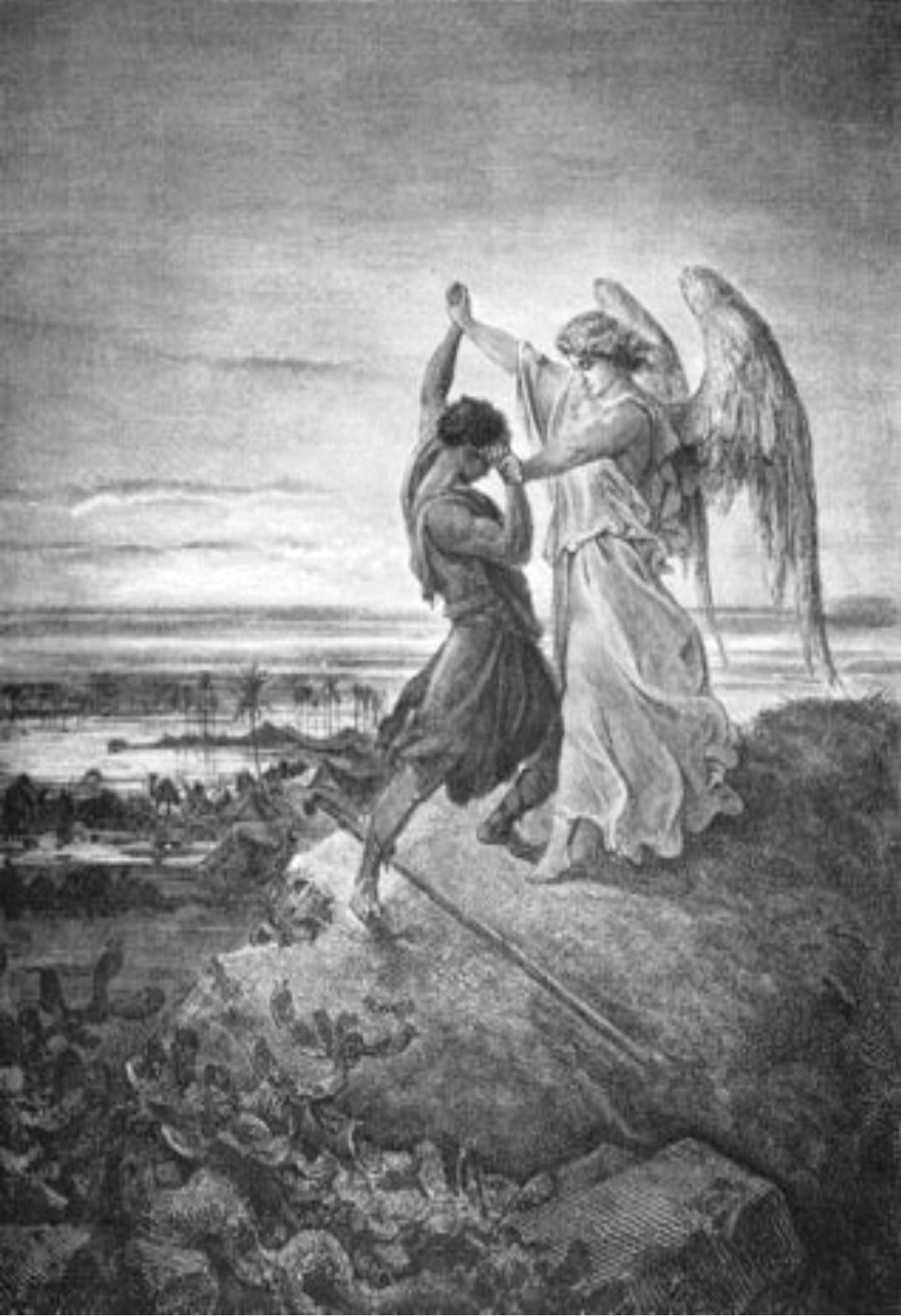
This drawing by Gustave Doré is one of several depictions by well-known artists of an incident recorded in the Book of Genesis, in which Jacob wrestled with an angel for a night. Towards the morning, the angel touched Jacob on the thigh, which left him “halt” (lame). But afterwards, the angel blessed him and changed his name to Israel.
Of course, there have been many interpretations of what the incident might signify. The notion “See God and die” perhaps lies behind it. Jacob found it remarkable that he had been allowed to survive his encounter with a being of perfect truth and light. It is a dangerous thing to come that close to the beginning and end of Creation and hardly surprising that he was lame afterwards. He got off lightly. Further, as a result of the struggle and his conduct in it, he came into his own, that night.
Here is a collection of poems suggested by the incident. They were written at different times and none is entirely new. But several have been changed extensively.
Posted:
-

